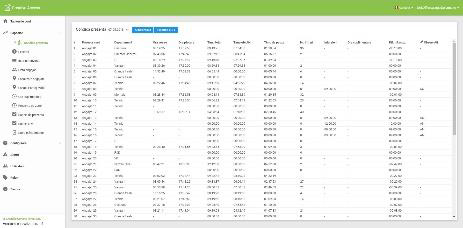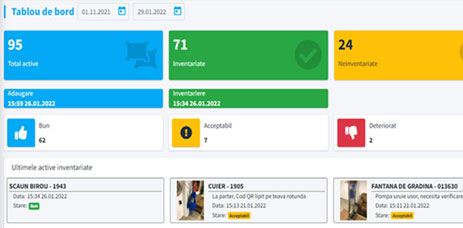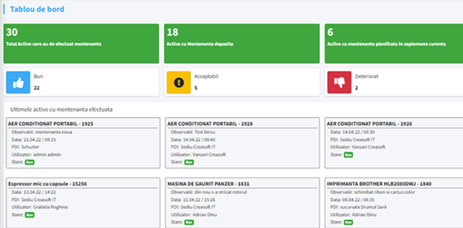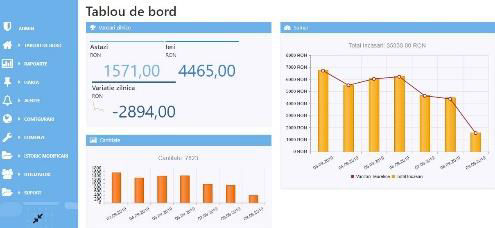CLARIFICATIONS REGARDING THE EMPLOYER'S OBLIGATION TO KEEP RECORDS OF WORKING HOURS PROVIDED BY EMPLOYEES
The employer's obligation to keep records of the hours worked by each employee is provided for in Law no. 53/2003 – Labor Code, since its entry into force on March 1, 2003.
This record is mandatory not only to create the possibility of checking how the employer complies with the legal provisions regarding working and rest time, but also for the correct preparation of the payroll, Order of the Ministry of Public Finance no. 2.634/2015 regarding financial-accounting documents, providing in Annex no. 2, Group V, Wages and other Personnel Rights, the fact that the documents recording the time actually worked, are the basis for drawing up the payroll, document drawn up for calculating the monetary rights due to employees, as well as contributions and other amounts due.
Considering the importance of the existence of the record of the working time actually worked, both for the employee and the employer, as well as for the institutions that have the competence to verify compliance with the legislation on working time and rest as well as the establishment of the monetary rights due to employees, related contributions and other amounts owed, it goes without saying that the intention of the regulation was to oblige the employer to keep a real record of the hours of work actually performed by each employee. For an accurate record of working time, embodied in the centralized time sheet drawn up monthly, in order to draw up the payroll, this must be based on the primary record documents, existing at the workplace where the employee actually carries out his activity, even if this is a mobile place, as for example, drivers have, a fact that happened until now.
By amending article 119 of the Labor Code, through GEO 53/2017, starting on August 7, 2017, the legislator only clarified an already existing regulation, which, for a correct application, had to be refer to the hours actually worked by the employee, and not, as has sometimes been found in practice, to a number of hours recorded in a centralized time attendance form drawn up at the employer's headquarters without taking into account the actual activity of the employee.
For example, security and protection companies, which present as evidence of working time centralized time sheets from which it follows that the employees work from Monday to Friday, 8 hours/day, or even 2 or 4 hours/day, in the conditions where, from the handover-acceptance minutes register, used at each guard station according to Law no. 333/2003 regarding the protection of objectives, assets, valuables and the protection of persons, republished, document in which the start and end time of the service is highlighted, it follows that the actual time worked is 12, 16 or even 24 hours, including Saturdays and Sundays.
Regarding the method of recording the hours of work actually performed by the employee, the legislator did not establish how the employer must keep this record having, according to the Labor Code, the attribute of establishing the organization and operation of the unit. So, this record may be kept both on paper and electronically, for people who have access to the workplace based on a card or record the interval in which they actually perform the activity in any other way (for instance, recording in the tachograph of driving periods, breaks and rest periods of drivers), following that the preparation of the centralizing monthly records will be based on these primary documents recording the actual working time performed by the employee at his workplace, regardless whether it is fixed or mobile.
The employer can establish the organization of working time, depending on the specifics of the activity carried out, including through an unequal, individualized work schedule, in shifts, within the compressed work week, under the conditions established in the Labor Code, in compliance with the legal provisions regarding time work and rest.
The working time of the mobile worker carrying out road transport activities is defined by H.G. no. 38/2008 on the organization of the working time of people who carry out mobile road transport activities, with subsequent amendments and additions, as the period from the beginning to the end of the working time, during which the mobile worker is at his workplace, at the disposal of the employer and in the exercise of his functions or activities.
Regarding the activity of teaching staff, they have special regulations provided by Law no. 1/2011 of national education. For example, for undergraduate education, it is stipulated that the weekly didactic norm is quantified in conventional hours, one hour of teaching activities representing two conventional hours, and the other activities included in the didactic norm, quantified in conventional hours, through a methodology approved by the university senate, depending on the study program, profile and specialization, so that a physical hour of activities corresponds to at least 0.5 conventional hours. Therefore, in this case too, the employer will keep track of the working hours provided by the teaching staff, taking into account both the general principle of drawing up a real situation, corresponding to the time actually worked, but also the special regulations regarding the working time of the teaching staff.
As regards the employees who work at home, respectively, those employees who perform the duties specific to the position they hold at their home, the Labor Code provides that they establish their own work schedule, the employer being entitled to check their activity under the conditions established by the individual employment contract.
We also remind you that the Government of Romania has adopted the Law on the regulation of telework activity, which is currently under debate in the Parliament, a normative act that establishes the possibility for the employee to carry out his activity remotely, outside the workplace organized by employer, by using means related to information and communication technology, such as the Internet, smart phone, etc.
Note: this document may be read on the website www.inspectiamuncii.ro
The Labor Inspectorate - is a specialized body of the central public administration subordinate to the Ministry of Labor and Social Protection, based in the City of Bucharest.
The institution has legal personality and fulfills the function of state authority, through which it ensures the exercise of control in the fields of labor relations, safety and health at work and market surveillance.
The Labor Inspectorate acts to ensure the social protection of work, based on the provisions of art. 41 of the Constitution of Romania, republished, and, respectively, of the provisions of the ILO Convention no. 81/1947 regarding labor inspection in industry and commerce, ratified by State Council Decree no. 284/1973 and the ILO Convention no. 129/1969 regarding labor inspection in agriculture, ratified by State Council Decree no. 83/1975.




